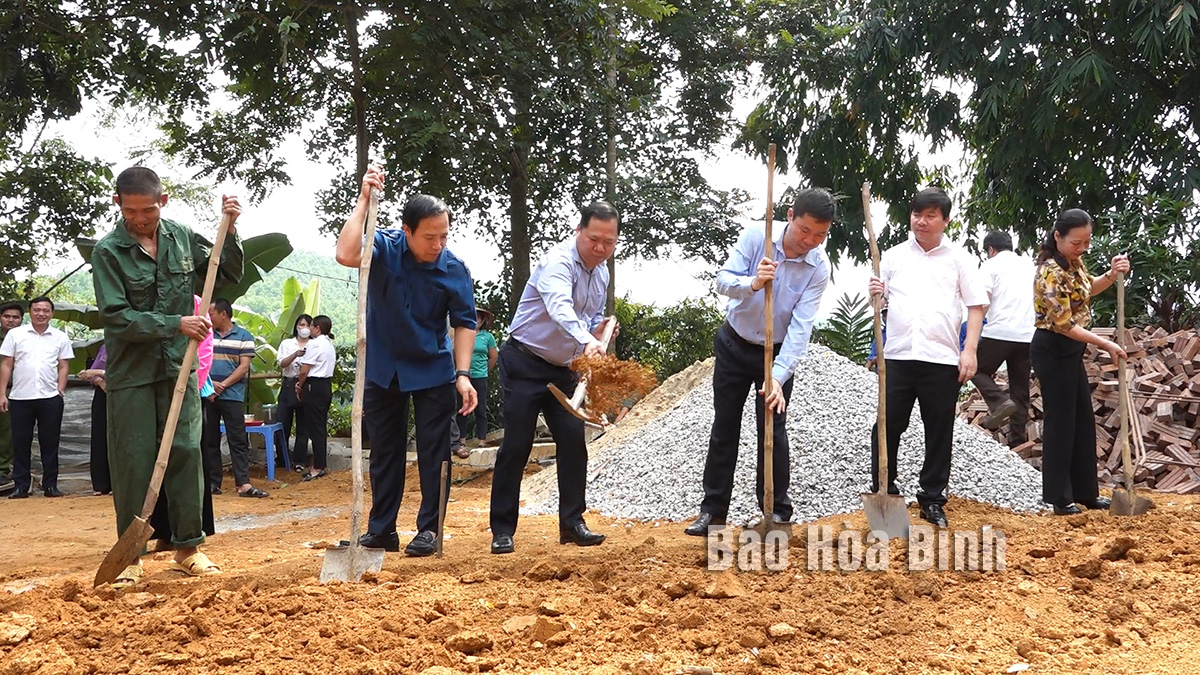Da Bac has become a model of implementing the province’s housing scheme as it
regards eradicating substandard housing as a top priority in poverty reduction.
It has maximised resources to support the needy and strived to ensure
transparency in the work.
All-level Party committees, Vietnam Fatherland Front (VFF) committees, and
authorities in the district have reviewed and made a list of 882 poor families
that need housing support, of them 280 receiving the aid so far this year with
total funding of 14 billion VND (553,359 USD).
Bui Thi Kieu, head of the Da Bac district Party Committee’s Mass Mobilisation
Board and President of the district VFF Committee, said the housing scheme has
served as a pillar for disadvantaged families in economic development, and
sustainable poverty reduction.
Meanwhile, Chairman of the Lac Son district People’s Committee Bui Van Linh
said his locality has stepped up the communications work to raise the awareness
among officials, Party members, businesses, and the public of poverty reduction
and support for "the fund for the poor”.
According to the official, a ceremony was held in early October in response to
450-day drive to remove substandard housing by late 2025. The province has
allocated 3.5 billion VND to Lac Son to repair and build 70 houses there.
Photo: Representative of the Yen Thuy district VFF Committee and donors present
a house to Pham Van Kien in Yen Tri commune.
Since the beginning of this year, the province has received 43.6 billion VND in
donations for the scheme, of them 24.6 billion VND allocated to build 492 new
homes.
To complete the work, local authorities have carried forward their role and
responsibility, while calling for the engagement of the entire political
system.
Apart from Da Bac and Lac Son, other districts and Son La city are also
resolved to meet the scheme deadline, with 3,194 houses scheduled to be built
or repaired by 2025.
Statistics show that Hoa Binh has over 20,000 poor households, including 6,362
living in temporary or dilapidated homes, with 3,194 facing urgent housing
needs.
From 2021 to 2023, the province prioritised resources totaling 77.18 billion
VND to do away with substandard housing for 2,157 poor and near-poor families,
with a focus on ethnic minorities and residents in remote and disadvantaged
areas.
Chairman of the provincial VFF Committee Bui Van Luyen said campaigns and
initiatives aimed at supporting low-income households in the province have
received the attention from local authorities as well as businesses and people
in and outside Hoa Binh.
During the action month for the poor from October 9-25, a total of 165
organisations and individuals contributed more than 4.82 billion VND to the
fund. Additionally, some pledged over 1.87 billion VND in cash and 200 million
VND worth of materials, while others committed to directly building homes worth
1.72 billion VND.



